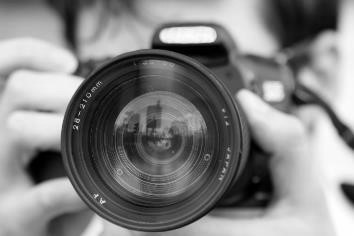Journalism is an ever-changing industry

Despite a decline in the number of magazines and newspapers being published around the world, there is more work for writers and publishers today than ever before!
- People have more access than ever before to electronic content and are increasingly reading electronic publications - eBooks, blogs, ezines, even electronic newspapers.
- The global population is larger than ever, and the rate of literacy is higher than ever.
- All of this represents more opportunities than ever before for careers and businesses in writing and journalism.
A fantastic foundation in journalism
This course has evolved since its inception in the 1980's, adapting to changes in the world of publishing. It has been developed and is taught professional writers and publishers.
- A fantastic foundation for anyone to explore their strengths and weaknesses; then find and pursue their best opportunities in the field of journalism.
Do you want to be a Journalist?
Journalists are primarily writers who are writing for periodicals (i.e. items such as newsletters or magazines which are published at regular intervals). Some journalists work on staff for a publisher from the publishers office, while others may work on a freelance or contract basis, from home, submitting articles which have been commissioned, or on spec (i.e. in the hope they will be accepted).
Freelance journalists often start slow, only getting occasional articles published early in their career; but with persistence and good luck, they can develop a reputation and network of publishers who accept their work (so much so that they can earn a comfortable living from their writing).
Some in house journalists will find themselves being used to perform a range of other jobs in the office where they work. Particularly in smaller publishing houses where they may need to help with editing, layout (preparing publications for printing), web site development, marketing copy writing, conducting interviews, answering the phone, research for articles, photography, etc.
Some freelance journalists supplement their income by undertaking other work as well, such as contract editing for publishers, writing advertising copy or web site development, taking and selling photos, etc.
Be taught by Journalists
This course has been developed by, and is taught by, successful Journalists, Editors and Authors with work published around the world. The course is continually reviewed to ensure relevance to an ever-changing industry. Through interaction with these experts you will develop a very hands-on understanding of the global industry, and develop an improved capacity to not only write, but write marketable work.
COMMENTS FROM OUR STUDENTS
" Thanks for the tips you gave me on the journalist job... I was given the job of writing an article... the experience was great and at least I will be published for the first time." Gavin, studying journalism
"Many of the skills that I have learnt from this course help me on a day-to-day basis." A. Peterson, ACS Journalism student.
WHY SHOULD YOU STUDY THIS COURSE?
- Improve your communication skills and your writing - have the confidence to approach potential clients.
- Discover how the industry works - be able to identify writing opportunities.
- Understand how the editing and publishing processes work, so you are prepared for the ways in which potential clients will need and expect you to work.
Seize the opportunity and act now - study Journalism with ACS!
What Next?
You can enrol today by clicking the “Enrol Now” button above.
Or
Click here to contact a writing tutor.
Or Request a Prospectus Here.